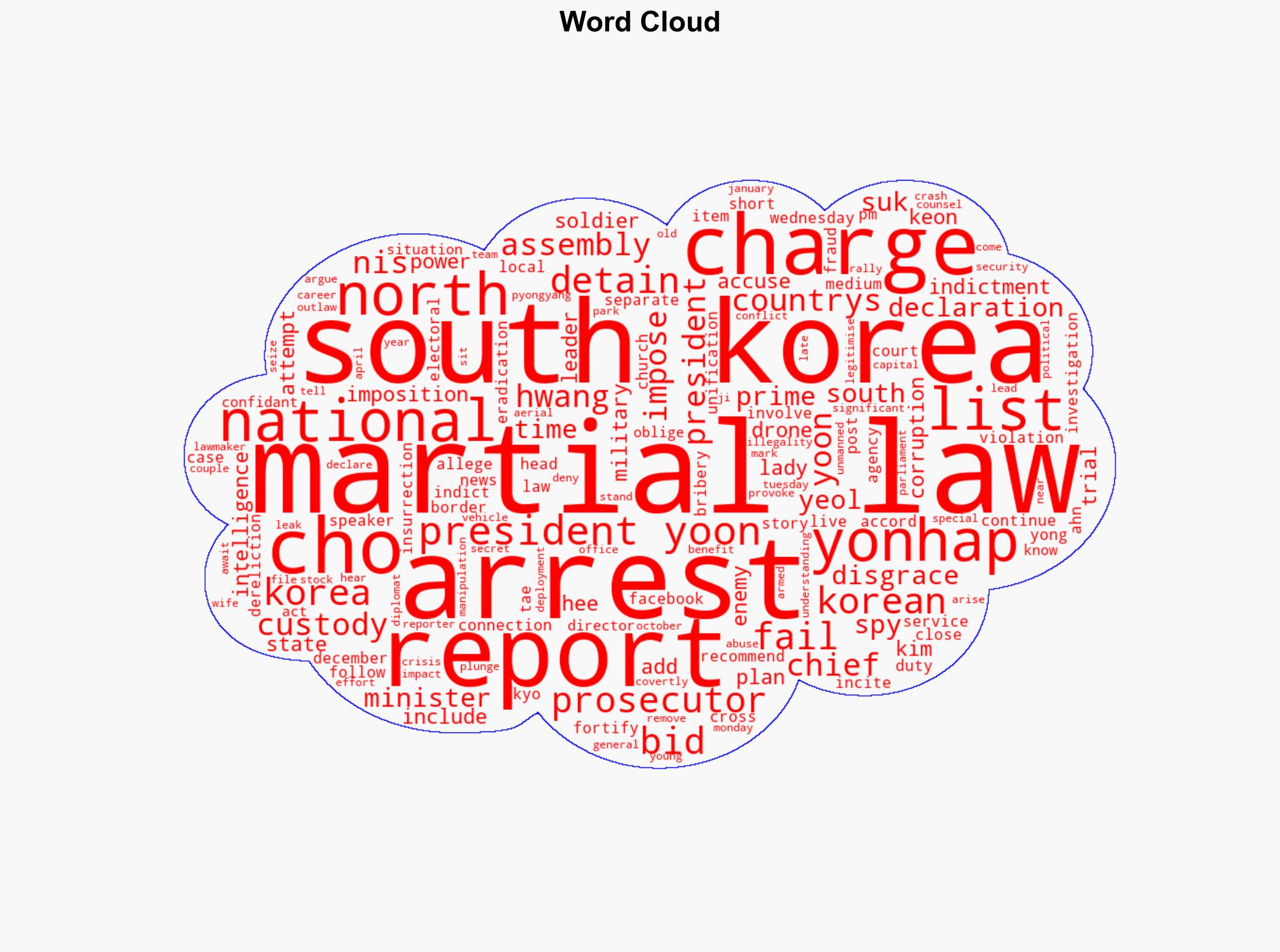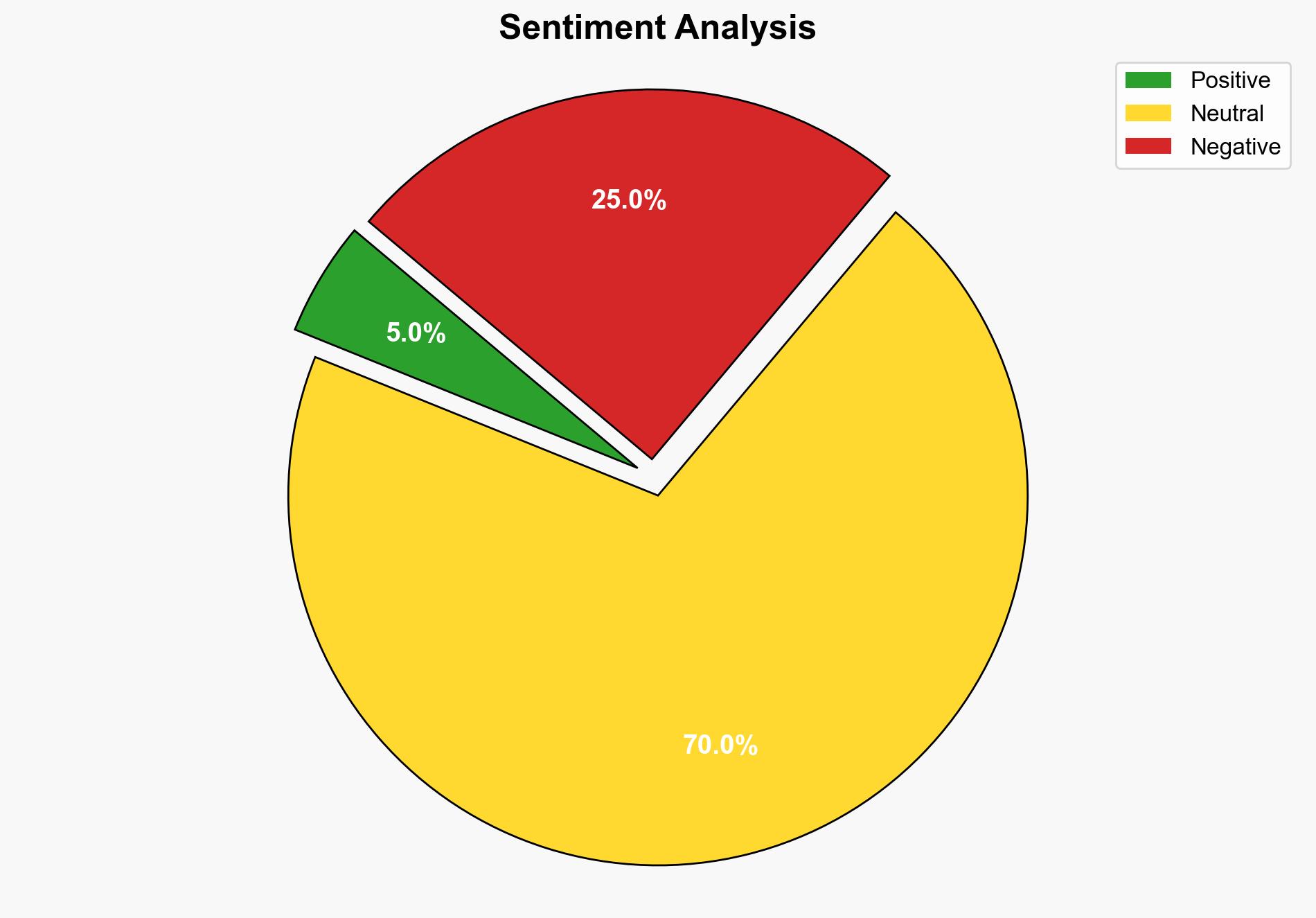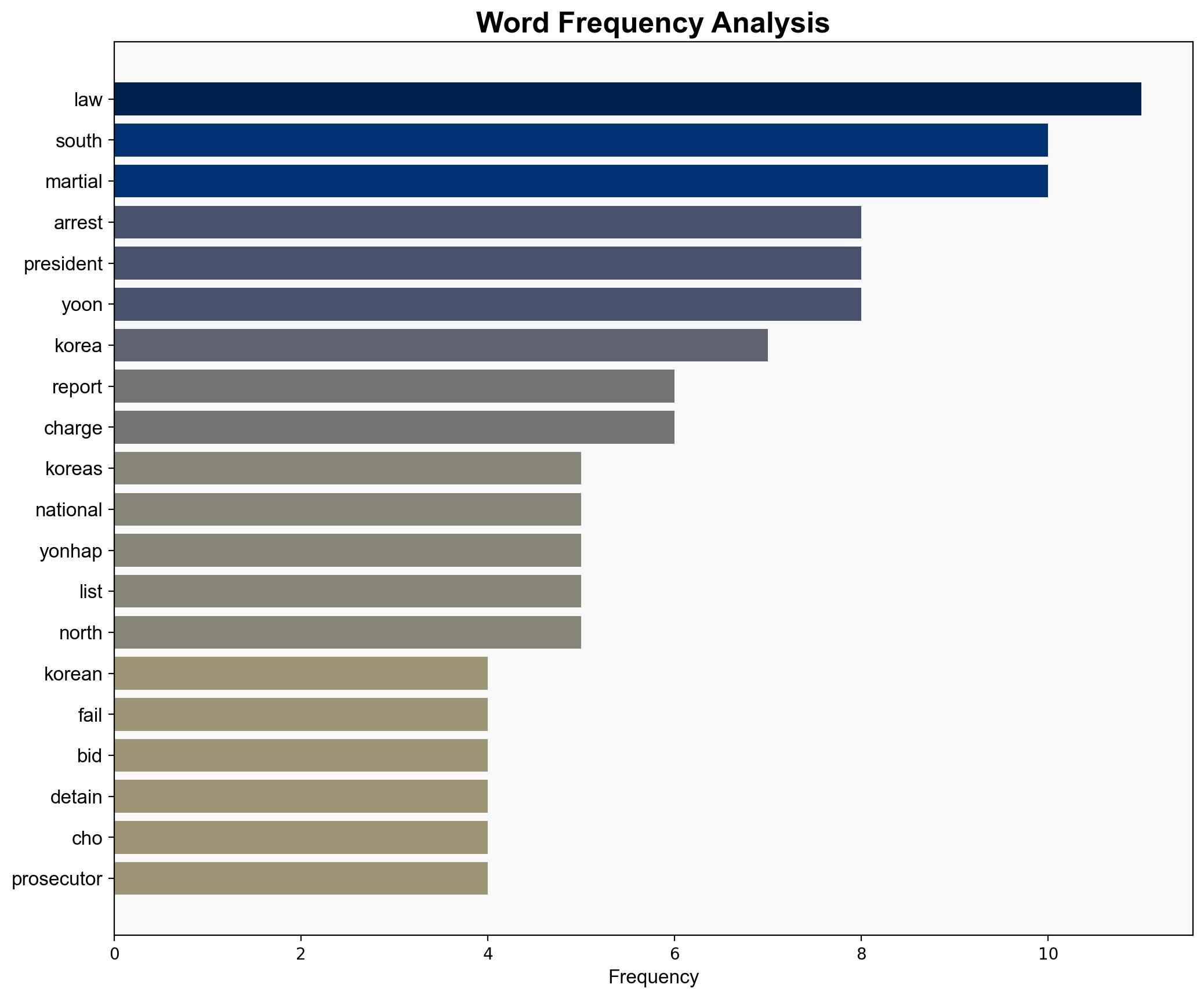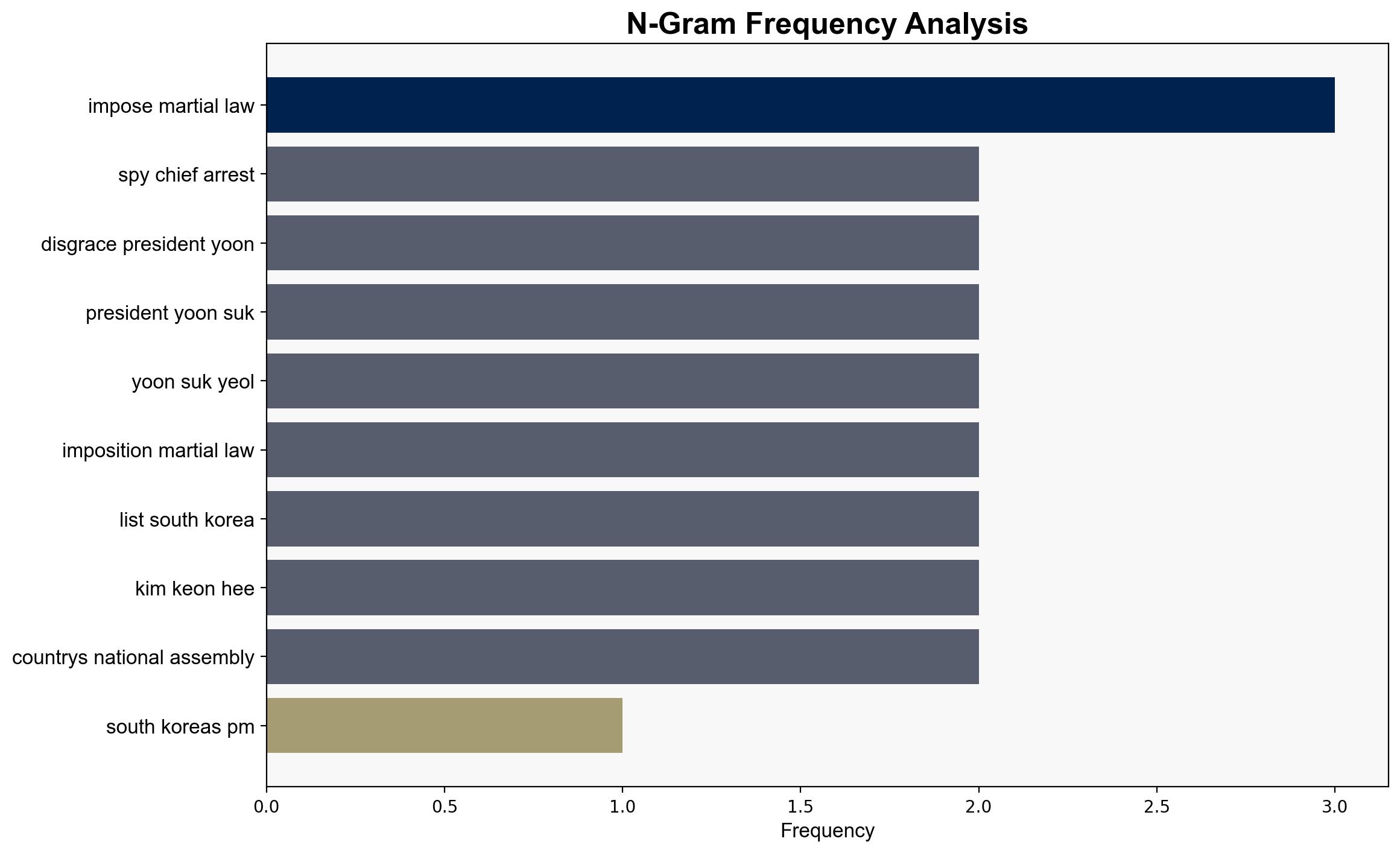South Koreas former PM spy chief arrested over martial law declaration – Al Jazeera English
Published on: 2025-11-12
AI-powered OSINT brief from verified open sources. Automated NLP signal extraction with human verification. See our Methodology and Why WorldWideWatchers.
Intelligence Report: South Koreas former PM spy chief arrested over martial law declaration – Al Jazeera English
1. BLUF (Bottom Line Up Front)
With moderate confidence, the most supported hypothesis is that the arrest of South Korea’s former PM and spy chief is part of a broader political maneuver to consolidate power and address internal dissent following the failed martial law attempt. Recommended actions include monitoring political stability and potential shifts in South Korea’s intelligence and military strategies.
2. Competing Hypotheses
Hypothesis 1: The arrests are primarily a legal response to the illegal actions taken by former officials, aiming to restore rule of law and prevent future attempts to undermine democratic processes.
Hypothesis 2: The arrests are politically motivated, serving as a means for the current administration to eliminate political rivals and consolidate power by leveraging legal systems.
Hypothesis 2 is more likely given the pattern of simultaneous arrests, the involvement of high-profile figures, and the political context of the failed martial law imposition.
3. Key Assumptions and Red Flags
Assumptions: It is assumed that the legal proceedings are transparent and free from political influence, which may not be the case.
Red Flags: The timing of the arrests and the involvement of multiple high-ranking officials suggest potential political motivations.
Deception Indicators: Public statements by involved parties may be biased or misleading, aiming to sway public opinion or international perception.
4. Implications and Strategic Risks
The arrests could lead to increased political instability in South Korea, potentially affecting regional security dynamics. There is a risk of escalating tensions with North Korea if perceived as a power struggle. Economically, investor confidence might be shaken, impacting South Korea’s market stability. Information warfare could intensify as various factions attempt to control the narrative.
5. Recommendations and Outlook
- Monitor political developments closely to anticipate shifts in power dynamics.
- Engage in diplomatic dialogue with South Korean counterparts to understand their perspective and offer support for democratic processes.
- Prepare for potential cyber threats as political tensions may lead to increased cyber activity.
- Best-case scenario: Legal proceedings are conducted fairly, leading to political stability and strengthened democratic institutions.
- Worst-case scenario: Political unrest escalates, leading to a crisis that destabilizes the region and affects global markets.
- Most-likely scenario: A prolonged period of political tension with gradual resolution through legal and political channels.
6. Key Individuals and Entities
Yoon Suk-yeol, Hwang Kyo-ahn, Cho Tae-yong, Kim Keon-hee
7. Thematic Tags
National Security Threats
Structured Analytic Techniques Applied
- Cognitive Bias Stress Test: Expose and correct potential biases in assessments through red-teaming and structured challenge.
- Bayesian Scenario Modeling: Use probabilistic forecasting for conflict trajectories or escalation likelihood.
- Network Influence Mapping: Map relationships between state and non-state actors for impact estimation.
Explore more:
National Security Threats Briefs ·
Daily Summary ·
Methodology





